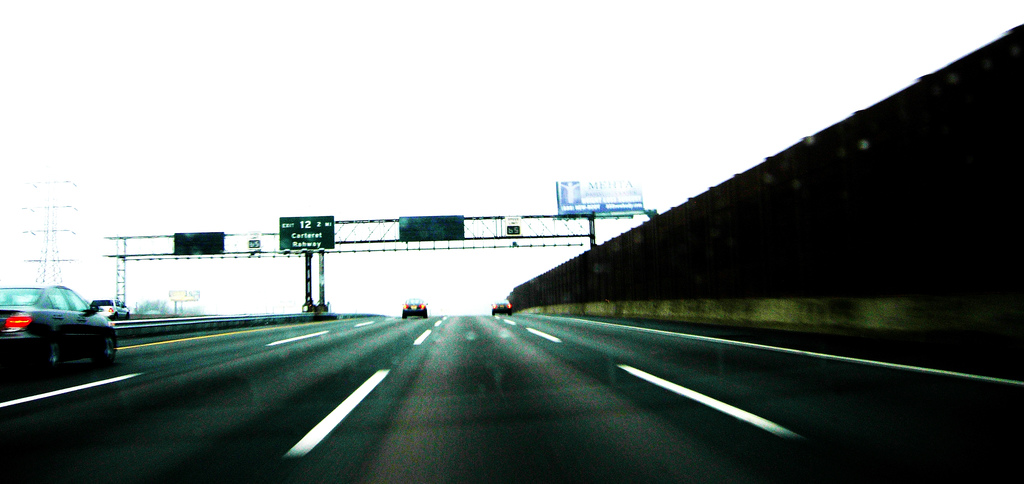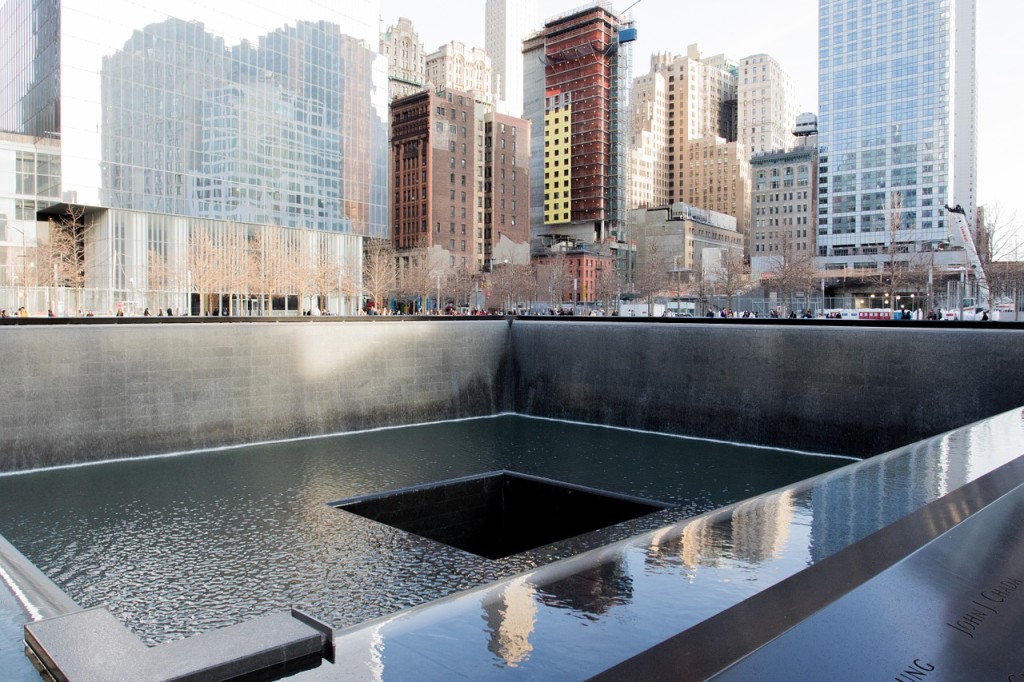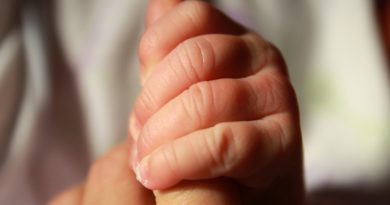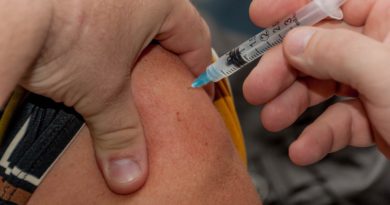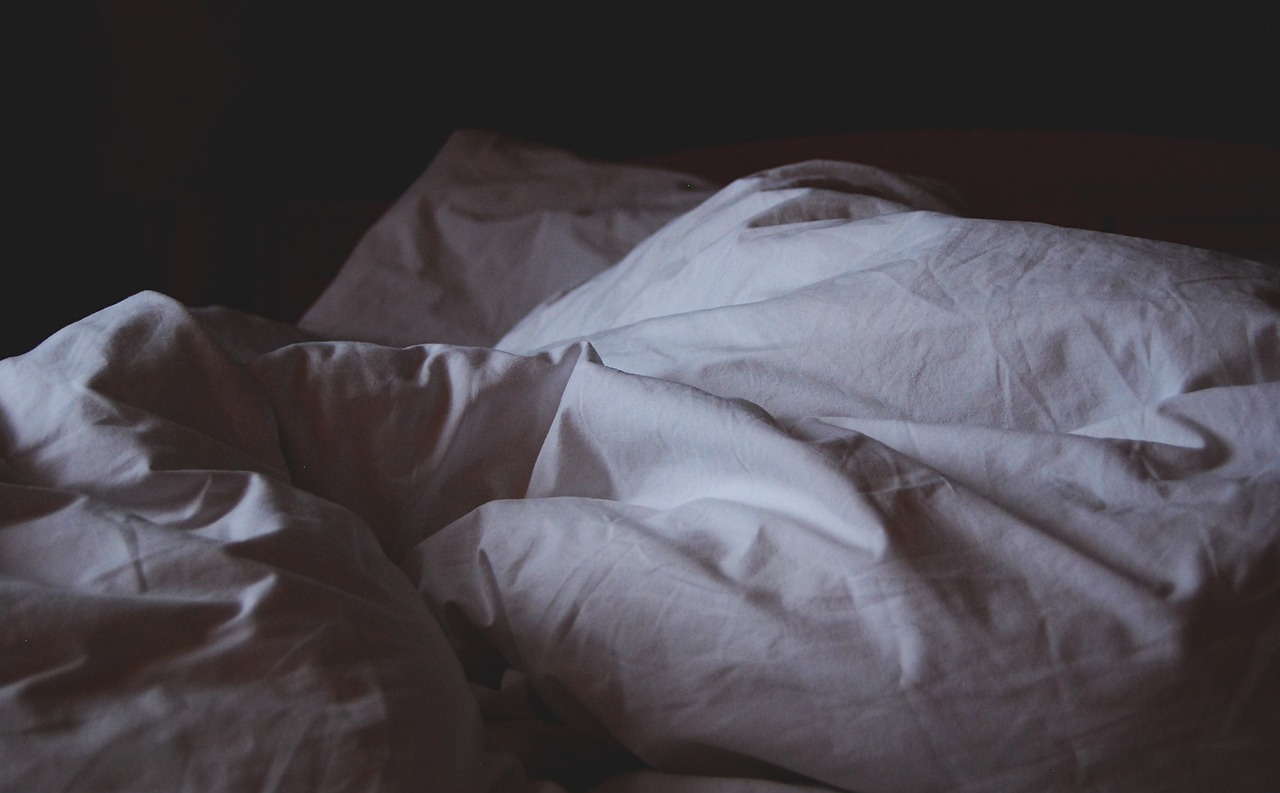I Watched The World Burn From Exit 12
By Kimberly Zapata
It took four years, four months and 18 days for the first tower to open. When ground broke on the site in August 1966, my 12-year-old mother watched with anticipation from the window of her three floor walk-up in Jersey City. (For those unacquainted with this view, it is a view of a city unobstructed, a view of a city which seems so close yet so far away, a view of a city across a river which has become synonymous with the city itself.)
She grew as the Towers did; she watched — with the world — as these seemingly perfect buildings began to swallow the sky. And they were, in a way, perfect. They were designed to meet the highest building codes of the day; they were designed to be wind resistant and fire resistant. And, after concerns were raised by The New York Times, they were designed to withstand the impact of a fully-loaded commercial jetliner. They were designed to stand, a symbol of architectural success and human innovation, along the lower Manhattan skyline forever.
She was 16 when they opened; I was 17 when they fell.
The South Tower fell after 102 minutes; the North Tower fell after just 56.
When I heard the news I was in second period history class, on the second day of my senior year. I lie; I was in the hallway. I had been excused to use the bathroom and was wandering about, extending my pee break in true teenage fashion. As I meandered through the wide, locker-lined hall on the first floor, peeking in classrooms and hoping to find my friends, one of the teachers came running out. He was a heavy-set man, older and generally lethargic, but he was running.
“There was another one,” he gasped. “A second plane hit!”
I assumed I had heard him wrong. A plane? A second plane? And something was hit? I made my way back to my classroom, all but disregarding his comment, until I walked in. Something was wrong. My own teacher was missing, and the class was loud with conversation — a conversation about planes hitting buildings, and our country being under attack. The more I heard the less I understood. I couldn’t understand what everyone was saying. I couldn’t make sense of the words, no one could.
It was not until my teacher returned to the the room and turned on the television set (the one we were only allowed to watch during Channel 1 news) — it was not until I saw the images — that I understood. It was not until I saw the World Trade Centers burn, not until we saw the skyline — our skyline —swallowed by fire and smoke and soot, I grasped the gravity of what was happening. It was not until the blue heavens went gray and then black that I realized our world would never be the same.
The hours that followed were a blur. We were held in our classroom, held in cold metal seats and leaning over faux wood desks watching the same footage the rest of country saw until our school knew what to do or our parents arrived (whichever came first). I don’t know who I spoke to, what I wore, or anything else about those early hours aside from the the collapse — aside from what I saw on that small 13” television screen. Every now and then something would pull my attention away (I sat near the door and would overhear conversations about early dismissals and a city-wide shutdown) but the words didn’t stick. The images did. And I couldn’t turn away.
One-by-one parents arrived and students went missing. Some parents were crying, some students were crying, some teachers were crying. Chairs were left empty, lockers were left full, and the school was a buzz of noise and fear. I don’t remember how I ended up on the front lawn but at some point I did — we all did — and I was able to rendezvous with my baby brother, my best friend, and my future boyfriend.
Is your mom okay?
My voice wavered. At 17 I was ill-prepared to ask my friend — my best friend — if her mom was alive. I was ill-prepared to ask if that’s why she was crying, but I was also ill-prepared for this type of tragedy. So instead I settled on something small, something simple; instead I settled on okay.
She fought back tears; she said she didn’t know.
Around this time my own mother arrived. We hugged; we talked. We told her we were okay. That was the word of the day, okay. If you were alive, you were okay. No one was good, but there was okay.
Just as we were getting ready to go home and to sit in front of our televisions (where many of us would spend every minute of every day for the next week, month or even year) a plane flew overhead. We froze. Everyone froze. Everyone stopped and held there breath.
Carteret, New Jersey was twenty miles away from New York City — just a short ride and one river away. We saw the Towers burn, and fall, not only on the television but from our exit (number 12) on the New Jersey Turnpike, and we would watch for months — and years — as the rubble was hauled across the water and sorted on our shores.
And on that day we were in a “no fly” zone. While flights were grounded nationwide, we were in a “shoot ‘em if you see ‘em” zone.
And so we saw it. Dozens of us. Hundreds of us, and we stared — our gaze turned to the sky. We wondered; we worried. What was next. What could be next?
Maybe it was just my circle, maybe it was just the 10 or 20 people within an earshot, but I remember hearing a collective exhale when we finally saw the plane: when we saw it was military, when we saw it was the good guys and not Delta or United.
When I was asked to write my 9/11 story I felt like a fraud. Sure, I have a story but it is not one of survival or personal loss. (Even my friends mother turned out fine — and thankfully so.) It is not a special story or a unique story. It is the story of a day, a normal fucking day, turned upside down. Who am I to write about this day? What can I say that matters? But then I remembered that most of the nation, and many other parts of world, have memories just like mine. Most of the nation was not a survivor. Most of the nation was not there. And most of the nation did not experience personal loss. But we all have a story; we all our have our story. And these are the stories we need to share: the stories of a single moment in a single day that changed a generation.
These are the stories that keep their stories, and their memories, alive.
This post originally appeared on Mamalode.
Featured image: Peter Roome/Flickr

